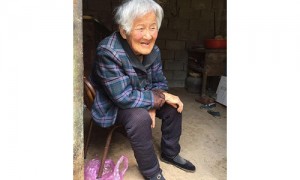Basic Information
Chinese name: adult
Foreign name: adult
Definition: A person 18 years of age or older
The ancient coming-of-age ceremony: the wedding ceremony
Meaning: enjoy various corresponding rights
Glossary
"Adult" has two meanings in modern times. One is that a child grows into an adult, that is, an adult at the age of adulthood; the other is that in the hearts of the parents, the child has the ability to live alone or even support the parents, which is a biological adult.
1. [perfect man] A person with both ability and political integrity. Jude complete. "The Analects of Confucius Xianwen": "Zi Lu asked an adult, and the master said: 'If Zang Wuzhong knew it, Gongchuo was unwilling, Bian Zhuangzi's courage, Ran Qiu's art, and his writing were rites and music, he could be considered an adult.'"
(1) "Knowledge of Zang Wuzhong", "Spring and Autumn. The Biography of Zuo. Twenty-three years of Duke Xiang of Lu": The Duke of Qi (Qi Zhuanggong) will hang his room (hang, condolences) for Zang Hetian and the Duke of Qi, and Zang Sun Wenzhi See, the Duke of Qi said to him to attack Jin (Jin, Duke Ping of Jin. The Duke of Qi said that he was able to attack Jin), and he said to him: The more is the more, and the suppression of the ruler is like a rat. The rat is nocturnal and moves at night, and it does not make a hole in the sleeping temple, because it is afraid of people. Now, when you hear about the rebellion in Jin, you do it (as an army). Would you rather be a general? How about a non-rat? It is Fu and Tian (Tang Kong Yingda Shuyun: Zang Sun knew that the Marquis of Qi was going to be defeated, and he did not want to take his town, so he compared the mouse, and wanted to make his anger stop). Zhongni said: The difficulty of knowing (sound and wisdom) is the same as that of Zang Wuzhong (saying that he can avoid the disaster of Qi), but it is not allowed to be in the state of Lu, and there is a reason for it. If you do not go well, you do not forgive (Fuqian Yun: If you do not go well, you are called Aji, and you will abolish the leader and establish the young; if you do not forgive, you will hate Meng, and you will build up the shu), Xia Shu said: I am here. The pre-annotation cloud: Yishu is also, read this matter, in this body, words and deeds should always think as in your own body).
(2) "Bian Zhuangzi's Courage", "The Biography of Han Poems": Bian Zhuangzi is brave, when his mother was safe, he fought three battles and three norths, made friends, and humiliated him. Bian Zhuangzi was ordered, and his color did not change. Three years after my mother's death (three years of mourning, the end of the twenty-fifth month), Lu Xingshi, Bian Zhuangzi invited him to follow, and when he arrived, he saw the general and said: "I was still with my mother before, so I would humiliate my body because of the battle to the north." Today's mother is gone, please take the blame. Then he walked away from the enemy and bowed his head, and got the head of the armor and offered it, please use this as a fortress to the north. He also got the head of the first and offered it, please use this fortress to the north, and the general will stop it and say: foot. Not only that, but also won the first head and offered it, saying: Please use this to fortify the three norths. The general stopped and said, "Foot, please be my brother." Bian Zhuangzi said, "Hubei is also my adoptive mother. Today, my mother has passed away, and I am responsible for it. I have heard that: the judiciary does not humiliate his life. Then he ran to the enemy, killed seventy people and died. When the gentleman heard it, he said: "The Three Norths have been filled with responsibilities, and the world has been destroyed, and the sect has been destroyed. The festival of scholars is small, but the filial piety has not yet ended. The poem said: There is no beginning, and there is no end (Da Ya. Dang).
(3) "The Art of Ran Qiu", see "Spring and Autumn Zuo Chuan Lu Aigong Eleventh Year".
①Tang Yuanzhen's "School Commander Cui Shiyi Guards Zuo Qianniu's Self-Preparation System": "You and others are very respected, and their teachings are very high. I am like my father, and I am afraid of the law. I am afraid of the teacher. It can be paralleled with adults in the imperial court.” ② Song Chenliang’s “Jiachen Qiu’s Answer to Secretary Zhu Yuanhui”: “So Liang is a scholar, and learning is an adult, and a Confucian is also a big person in a door.” It is also called becoming a perfect person.
③ Ming Li Zhi's "Answer to the Western Rocks of the Zhou Dynasty": "If you say you can't become a Buddha, can you also say that you can't become a human in this life?"
2. [adult] A person who has reached full development (especially in stature, physical strength, or intelligence), adulthood.
① "Rituals and Funeral Clothes": "Unmarried people are adults but unmarried people." Zheng Xuan Note: "Adults, it is said that the 20-year-old has already been born."
② Tang Liu Changqing's poem "Send Aunt's Children to the Southern Suburbs": "When we were apart, we were two children, but now we are adults."
③ Qing Zhou Zhongfu's "Notes on Zhengtang" Volume 3: "That is, the concubine has a son, eight years ago, and he is not an adult." It also refers to an adult.
④ "Historical Records: Zhao Shijia": "Now Zhao Wu has established himself, he is an adult, and he will return to his former position."
⑤ Lu Xun's "Qie Jie Ting Essays: My First Master": "The monks received the great precepts, and they were promoted from novice to monks, just like our lay family, who went from a boy to an adult."
3. Create people. "The book of Wei, Biography of Scholars, Chang Shuang": "Yun said: 'Wen Weng Rousheng, the gentleman is strong and strong, although the establishment of teaching is special, the adult is one.'"
4, into a device, into a material. ① Ming Shi Nai'an's "Water Margin" 17th episode "Flower Monk Singles Against Two Dragon Mountain Green-faced Beasts Double Treasures Temple of Treasures" I will lift you up as an adult, how dare you do such ungrateful things! ② "Dream of Red Mansions" 81st episode : "Now that you talk about it, you should also work hard. Your father wants you to be an adult, and he is very earnest."
Chinese etiquette
The ceremony of the crown (笄) is a traditional coming-of-age ceremony of the Han nationality in my country and an important cultural heritage of the Han nationality. Historically, it has greatly stimulated and inspired the growth of individual members. In fact, its influence on our life process is far more than the so-called "coming-of-age ceremony" that is popular today. The Chinese ancestors attached great importance to the ceremony of crowning. The so-called "the beginning of the ceremony of the crown" is not accidental.
The ancestors held this ceremony for the young men and women who have stepped into adulthood to remind those who perform the crown (笄) ceremony: from now on, the "children" who are irresponsible in the family will be transformed into adults who have officially entered the society. only by virtue of filial piety, obedience, loyalty, and obedience can one become a qualified son (daughter), a qualified younger brother (sister), a qualified citizen (for the past, a qualified minister), a qualified junior, and a variety of qualified social roles . only in this way can it be called a qualified member of society. Therefore, the crown ceremony is "to request the etiquette of people with the etiquette of adulthood". On the basis of inheriting the positive motivating values of the traditional crown ceremony, such as being responsible to young people, benevolence, righteousness, and filial piety, we should actively seek appropriate methods to inspire young people to be patriotic, progressive, rational, and progressive in the ceremony of crown (笄) The proper moral character.
wedding ceremony
As a girl's coming-of-age ceremony, like the man's crown ceremony, it is also a ceremony to express adulthood. It is roughly the same as the crown ceremony in terms of the procedure of raising the ceremony. But there are also many issues that need to be highlighted separately.
1. The meaning of salute
The ancient meaning of the gai li is based on the principle that men are superior to women, so there are some obvious marks of the times. It is obvious that women's social responsibilities are narrowed in a narrow range; however, we should not give up the sacred and symbolic role of the ritual itself on the grounds of the limitation of the times. In fact, it is entirely possible to give new ideas to the times on this basis. We will find that the symbolism of the wedding ceremony is as important as the crown ceremony, and it is also a reminder of life responsibilities and social roles - of course, the connotation of this social responsibility has been adjusted according to the progress of the times. Women need independence and self-improvement, but women's self-improvement does not need to annihilate their own softness in the way that men are powerful. Regarding the contradiction between the two, we have actually gone through the misunderstanding. Women want to be "equal", and they should look up to men in their gestures. There is no elegance, and a bit more rude... So, teach girls in the process of growing up. How to correctly understand the relationship between beauty and self-improvement is a very meaningful thing. We must admit that the way of ceremonial ceremonies has a feminine peculiar beauty: a long hair, a bun, carefully combed into a beautiful bun, solemnly tied on the hairpin... This process reflects the feminine beauty, It implies that women will support our world in a different way than men.
2. The age of salute
"Zhou Li" and ancient customs, are about fifteen years old to do the ceremonial ceremony, twenty at the latest. Taking into account the development of the times and the adjustment of the meaning of the wedding ceremony, girls and boys have to study and complete their studies. Therefore, this time should be placed at the age of 18 after high school graduation.
3. The date of the ceremony
Regarding this date, the previous section of the crown ceremony has already been described in detail, so there is no additional description, but only one additional date: the third day of the third month of the lunar calendar-Daughter's Day (Shangsi Festival). This is a Chinese festival that originated more than 2,000 years ago, but it is only spread in Japan and South Korea. At present, "Hina's Day" is one of the five major festivals in Japan. Therefore, it is recommended to carry out the wedding ceremony on this day, which is not only a matter of traditional etiquette, but also of great significance to the revival of national festivals.
4. Pay attention to the problem
There is a lack of records in the literature on the ceremonies and clothing of the 笄 ceremony. However, based on various materials, the entire salute procedure is basically the same as the crown ceremony, with only slight differences in a few subtle aspects.
1. The participants of the ceremony, such as guests, yousi, and praisers, should be women. The location of the ceremony should be in the hall.
2. Plus 笄: The ancient women's 笄 ceremony is the same as the man's crown ceremony, and there are also three plus, two plus and so on. The crown is placed on a plate, and the top is covered with a handkerchief, which is held by Yousi. The three additions for men are scarves, caps, and heads, and women also have various hairpin crowns. Conditions permitting, can be added respectively, hairpin, phoenix crown. Taking into account the actual situation today, it is enough to simplify the ceremony with only one addition—that is, the Zhengbin solemnly combs the woman's hair and adds a hairpin. Hairpins and hairpins are still very popular today, so they are much easier than men's first clothes. There is almost no record of the ceremonial clothing for the ceremonial ceremonies, so I basically refer to the men's crown ceremonies for the following rituals.
3. about the length of hair: Many girls are accustomed to having short hair, which is in direct conflict with the way of the ceremony and cannot but be said to be a problem. We don't have any good suggestions on this yet, and would like to hear your opinions.
5. Concise operation procedures of the ceremonial ceremony
preparation activities
1. Feast Day: The date that is fixed. It is set on the birthday of an adult (both the Gregorian calendar and the lunar calendar) or a day of great significance to it. However, Spring Festival, Mid-Autumn Festival and Qingming Festival are not suitable for ceremonies - Spring Festival, Mid-Autumn Festival, family reunion days, it is not suitable to invite people to participate; Qingming main sacrifice, the theme does not match, the family temple cannot be used for two purposes.
2. Dingbin and Jiebin: that is, determine the participants, and invite them by invitation or various communication methods. For the official guests, parents should come to the door three days in advance (at the latest one day) to invite.
Attendees: the person who is holding the ceremony; the host—usually the parents of the person who is holding the ceremony; the guest—a female elder with virtue and talent; there is 1 person in the office—the person who serves the person who serves the cup; , usually friends and sisters of the person in charge; a number of spectators.
3. Utensils and furnishings: venues, uniforms, rituals, music, etc. Venue: In ancient times, the ceremonies were carried out in the "family temple", and a facility was also required to be built in the east of the main hall, which was called the "east room". It is recommended to be in a solemn, quiet and open venue with a strong cultural atmosphere. Such as Confucian temples, schools, etc.
[service system]
1. Picking clothing: Picking clothing is the boy's clothes worn before salute. According to Guanli's information: the style is short jackets and trousers, with black (black) cloth as the clothing, and vermilion brocade borders - I don't know if girls are also black? But it is recommended to wear brighter colors. Wear ordinary cloth shoes. Comb double bun.
2. The first addition: hairpins and ropas, plain-colored skirts, like middle clothes. There is no decoration on the hem, and the belt is made of ordinary muslin.
3. Add: hairpins, dark clothes.
4. Three plus: hairpin crown. Formal long-sleeved dress with tops and bottoms. Jewelry, etc. Placement of clothes: fold them in order, with the collar facing east, and place them on the seats from north to south, and the seats are placed on the east side of the venue; the hair accessories to be added should be placed on the plate by Yousi and stand in the west book of the venue. , facing south, lined up from east to west, in order: hairpin, hairpin, hairpin. Explanation: The clothes with three additions have different meanings, which symbolize the growth process of girls. The pure and beautiful colors of the clothes symbolize the innocence of girls; Innocence; dignified dark clothes (especially those of Quju) are recognized as the clothing that best embodies the beauty of Han women, symbolizing the beauty of young girls in the flower season; the grand-sleeved dress at the end reflects the aesthetic orientation of Han women— - Elegant and elegant.
[ceremony]
① 1 cup of Lijiu: It can be replaced by ordinary, relatively peaceful liquor. It is recommended to use a wine glass with a simple shape.
② 1 serving of rice: You can use a shallow plate or a small bowl to spread a layer of rice symbolically, and prepare a pair of bamboo chopsticks.
③Small a few: As a few cases for a sake feast, put 1 cup of sake and 1 portion of rice on it
④3 mats: 1 is placed on the east side of the venue to place the three sets of Hanfu to be worn. The other 2 are placed side by side on the west side of the center of the field, with seat cushions (for kneeling).
⑤ 1 toilet: Use an ordinary basin to add water, prepare a towel and mild hand sanitizer, and place it on the north side of the mat where the Hanfu is placed.
⑥ Incense burner, incense
⑦1 national flag wall chart
⑧ A number of seat cushions for the spectators.
[music]
Ritual is the order of heaven and earth; music is the harmony of heaven and earth. China's ritual and music civilization is a whole, and ritual and music are inseparable. Of course, the silk and bamboo orchestra is indispensable in the whole ceremony. But I hope to choose elegant ancient songs, such as "High Mountain" and "Flowing Water". Musical instruments such as qin and zheng are the best.
Etiquette Procedure
1. Welcoming guests: The host waits for the guests on the east steps; there is a tray on the west side; the guests stand outside the venue and wait; locker room); the music begins.
2. In place: There is a strict order. When the official guest arrives, the parents come forward to greet each other, and then enter the venue after a formal bow.
3. Opening ceremony: The host (father) got up and gave a simple speech. It can be said: Today, the little girl XX is going to the adult wedding ceremony, thank you all the guests and friends for coming! Next, the little girl XX adult wedding ceremony officially begins! After a while, Said, please enter the venue to meet all the guests and friends!
4. The person with the scorpion takes his place: the person who praises comes out first, washes his hands, and takes his seat on the west step; the person with the scorpion comes out, goes to the center of the venue, faces south, and bows to the guests. Then sit facing west (that is, sitting on your knees) on the seat of the savior. The liker combs his hair, then puts the comb to the south of the mat.
5. Guest wash: It is to prepare for the guest to wash their hands. Zhengbin got up first, and then the host got up to accompany him. Zhengbin washed his hands under the east steps and wiped them dry. After bowing to each other, the guest of honor and the host took their seats.
6. Beginning: The person who wears the hairpin turns to the east and sits upright; there is a secretary offering the Ropa and the hairpin, and the guest walks to the person with the hairpin; loudly chanting the congratulatory speech: "On the auspicious day of the month, the Canadian dollar will be served. , Shunerchengde. Shoukao Weiqi, Jieer Jingfu." Then he knelt down and sat down (with his knees on the seat) to comb the hair of the hairpin, and then got up and returned to the original position. The person who praises it is the person who is wearing it symbolically. The person with the hairpin got up, and Bin greeted the person with the hairpin. The scepter returned to the east room, and the admirer took the clothes from Yousi and went to the room to change the plain clothes and skirts that matched the top of the head.
7. One worship: After leaving the room, the person wearing the sur skirt will show it to the guests. Then face the parents and perform regular worship. This is the first prayer. This time, I express my gratitude for the kindness of my parents.
8. Erjia: The person with the hairpin sits facing the east; the guest washes his hands and resets it again; a secretary presents the hairpin, and the guest takes it and walks to the person with the hairpin; loudly chanting the congratulatory message: "Auspicious moon lingchen, It is Shen Erfu. Respecting Er's majesty, Shushende. Longevity, eternal Hu Fu." The person who praised the hairpin went to the hairpin. Zhengbin knelt down, put a hairpin on the hairpin of the person wearing the hairpin, and then got up and reset. Those who like to help the hairpins symbolically have hairpins. The guest bowed to the man who was wearing the robe. The wearer returned to the east room, and the admirer took the clothes and assisted, and went to the room to change and put on the hair.








